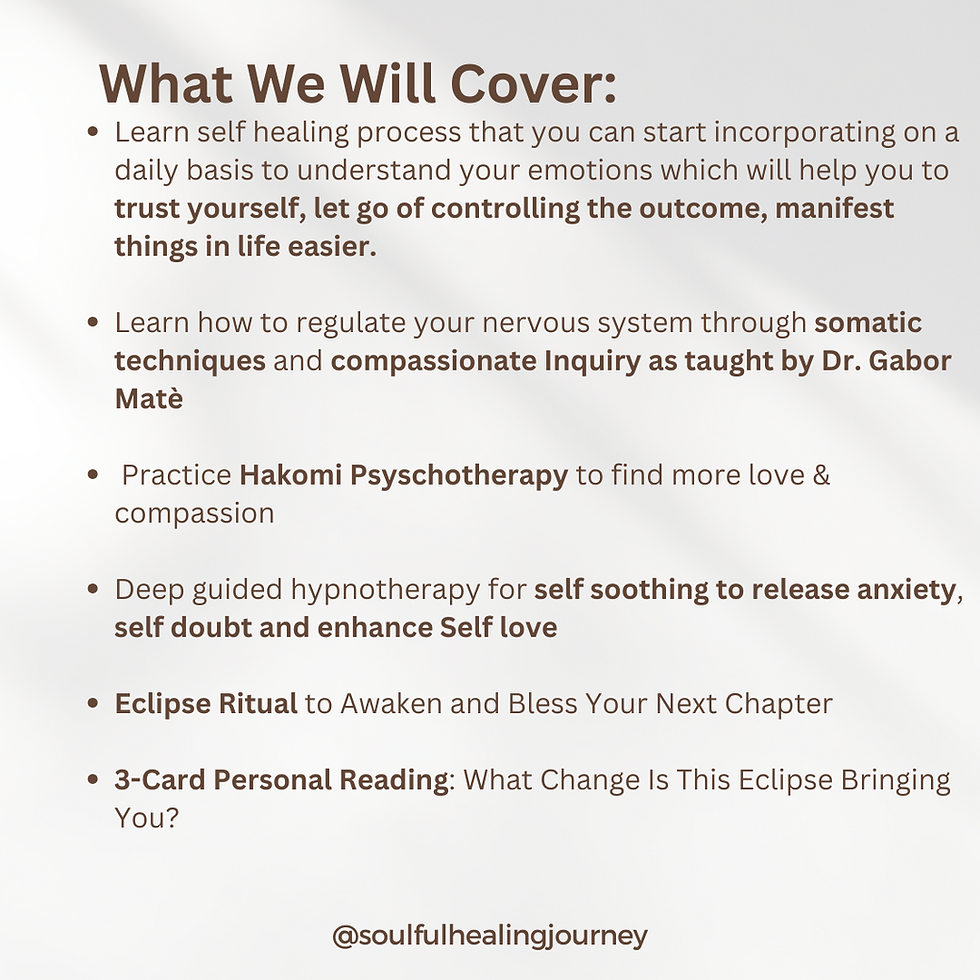How To Stop Carrying Other People's Emotional Weight
- Areena
- Aug 28, 2025
- 2 min read

The Role You Didn’t Ask For
For many of us, this role started early. Whether you’re the eldest child, like me or the youngest who somehow became the “designated oldest,” the pattern was the same: You became the one people turned to.
The one who handled things, listened, and fixed.
It might have felt good at first, being needed often does. For many of us, being a helper is a part of our identity, how we belong, or feel valued. But over time, you may begin to notice the cost: emotional exhaustion, resentment, or feeling invisible.
But here’s the truth: Belonging that requires self-abandonment is not belonging.
The Identity Trap
Letting go of the emotional go-to role is hard. Not just because others resist. But because you might resist. You might wonder, “Who am I if I’m not the strong one? Will they still love me if I stop fixing everything?”
You can be supportive and involved without taking full responsibility for someone else’s situation.
Stepping out of this role might bring up some intense emotions. Fear of rejection. Guilt for changing.
Grief for the identity you’re leaving behind.
And yet, you’re not really losing anything. You’re gaining something vital: yourself.
What’s Really Going On: Secondary Gain
Even if the role is overwhelming, there are unconscious benefits to staying in it. We feel important. We stay in control. We get to avoid our own feelings by focusing on others. We get praise.
This is called Secondary Gain. Ask yourself: What do I get to not face, not feel, or not experience by continuing in this role?
Awareness of these hidden motives doesn’t make you bad. It makes you human. And it gives you the power to choose differently.
Codependency, Enmeshment, and Emotional Boundaries
When you’re the go-to, you might feel responsible for everyone else’s emotions and fear that setting boundaries equals betrayal.
But someone else’s reaction to your boundaries is not your responsibility.
We must expect some resistance from everyone involved. Change is threatening, and we need to give our nervous systems a minute to adjust to a healthier way of being.
Shifting the Pattern
Identify the Dynamics: No blame, just clarity. What role do you play? What expectations exist?
Define Your Emotional Boundaries: What can you hold? What can’t you?
Speak with Compassion and Clarity: Clear is kind. Be direct without being harsh.
Prepare for Pushback: Change disrupts the dance, especially with family.
Seek Support: Therapy since this is so deeply ingrained subconscious work is needed, seek supportive community can help you stay grounded.
Remember: healthy relationships are not one-sided. You deserve reciprocity. And protecting your peace is not abandonment—it’s evolution.
Want to start HEALING? Join us on 7 September and leave feeling EMPOWERED!










.png)
Comments